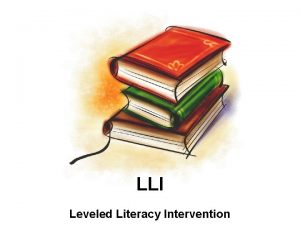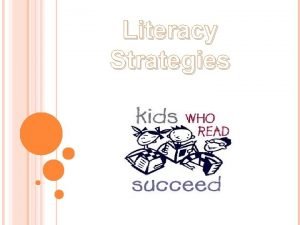Health Literacy Application to Early Intervention and Early

- Slides: 1

Health Literacy: Application to Early Intervention and Early Childhood Practice Kris Pizur- Barnekow, Amy R. Darragh* & Paula Rhyner University of Wisconsin-Milwaukee, The Ohio State University** BACKGROUND AND HISTORY Health literacy is the capacity to understand health information necessary to make appropriate health decisions. The U. S healthcare system aims to deliver quality care to millions of Americans who have limited health literacy. HEALTH LITERACY CONCEPTUALIZED In contrast, health literacy is an ASSET when people possess complex abilities enabling them to access, apply, and integrate information; this, fortunately, results in greater control over their health (Nutbeam). RESEARCH IN EARLY INTERVENTION. Caregivers of Children and Youth with Special Health Care Needs: EARLY INTERVENTION PROGRAM LITERATURE: Documents overall are prepared above the 5 th grade reading level. § develop and use a complex set of communicative and cognitive skills to promote the health of their children and families. § engage in activities that require interactive and critical health literacy skills to promote participation, management and decision making. § use health literacy skills to organize, coordinate, and communicate within and between the systems involved in the care of their children. Limited Health Literacy is associated with inadequate healthcare access, poor health outcomes and greater healthcare costs. Health literacy becomes a RISK when an individual presents with poor literacy, health literacy, and numeracy skills. These limited skills impair an individual’s ability to read, understand, and act upon health-related information (Nutbeam, 2008). HEALTH LITERACY AND CARE COORDINATION A MODEL OF CARE COORDINATION RESEARCH IN EARLY INTERVENTION The specific aim of one study was to determine: . the average reading level of the early intervention program literature that nine agencies provided to families. Conclusion: Agencies and service providers may not be using health literacy strategies in early intervention settings to communicate with families regarding services Darragh, Persch & Piaur-Barnekow, 2012 RESNA 2003 - June 19 to June 23

